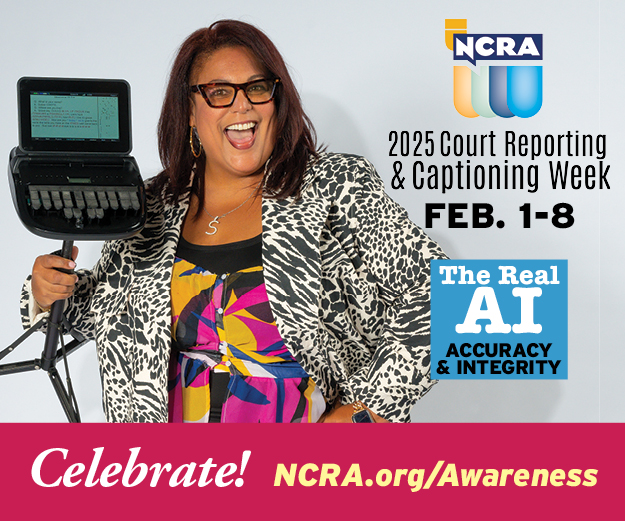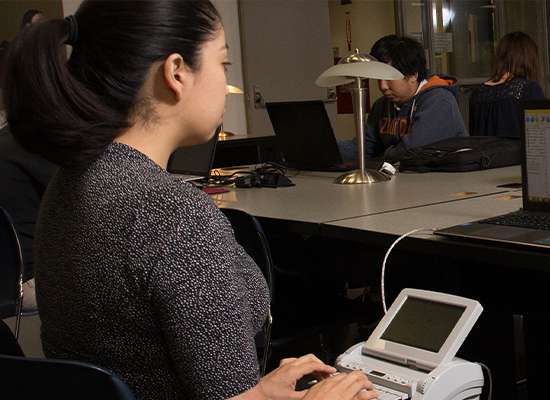How professional court reporting preserves equity in judicial settings
How professional court reporting preserves equity in judicial settings
Blog Article
Recognizing the Necessary Function of Court Coverage in Legal Procedures
Court coverage is commonly forgotten, yet it's vital in legal process. You might not recognize exactly how stenotype reporter assure every word talked is tape-recorded properly, influencing choices made by judges and juries. Their abilities and modern technology play a significant function in maintaining the honesty of lawful records. Yet exactly what does the procedure entail, and just how has it developed in time? Let's explore the essential functions of court coverage and its importance in the legal landscape.
The History of Court Coverage
Court coverage has an abundant history that dates back to ancient worlds, where scribes used numerous approaches to catch spoken words. By the 16th century, modern-day shorthand systems started to take form, enabling court reporters to create accurate records successfully.
Today, court press reporters play a considerable duty in legal procedures, making sure that every word spoken in the court is properly documented. Recognizing this history highlights the importance of court reporting in keeping a fair lawful system.
The Abilities Needed for Court Reporters
As a court press reporter, you require strong keying abilities to stay on top of the busy dialogue of lawful proceedings. Your capacity to listen attentively is simply as important, making sure every word is recorded accurately. Understanding these abilities is vital to supplying precise and reliable transcripts.
Skilled Keying Capabilities

Solid Paying Attention Skills
Solid paying attention abilities are important for court reporters, as they must accurately record spoken words in genuine time. You need to concentrate intently on the discussion, grabbing subtleties, tone, and context to assure every detail is taped appropriately. This ability assists you distinguish in between speakers, understand legal jargon, and comply with complex discussions. It's not almost listening to words; it's concerning comprehending and interpreting them promptly. You'll frequently encounter numerous accents and speech patterns, so adaptability is important. Practicing active listening strategies can boost your capacities; for example, summarizing what you've listened to after discussions can reinforce your abilities. Inevitably, strong paying attention abilities make you an important property in lawful process, guaranteeing quality and precision in the court record.
The Modern Technology Behind Court Reporting
In the domain of legal procedures, technology plays an important function in boosting the accuracy and efficiency of court reporting. You're likely accustomed to the traditional stenotype equipment, but contemporary court reporters now make use of innovative software that integrates with these makers, permitting real-time transcription. This indicates you can have instant accessibility to the transcript as the proceedings unfold.
Digital audio recording is an additional technical innovation that's getting grip. It catches every spoken word, assuring nothing is missed out on. Some reporters use voice recognition software, which can help simplify the transcription process, though it still calls for human oversight for accuracy.
Furthermore, cloud-based storage allows easy access and sharing of records, boosting partnership amongst lawful teams. By leveraging these modern technologies, court reporters can give high-quality, prompt documents that are important for the lawful procedure. Welcoming this technology not just enhances your understanding yet likewise ensures integrity in lawful documents.
The Court Coverage Refine

As lawful procedures unravel, the court reporting process comes to be important in recording every detail properly. You'll find that a stenotype reporter plays an important duty by transcribing spoken words into written text in real-time. When you enter the court room, the reporter is currently prepared, equipped with specialized tools like stenographic makers and audio recording gadgets.
Throughout the process, the reporter pays attention diligently, typing out everything said, from witness statements to legal representatives' debates. You may notice them stopping occasionally to ensure clarity or to request for a repeat if something wasn't clear. After the session, the press reporter examines the transcript, making needed edits for readability.
This entire procedure not just assures a detailed record yet also prepares you for future referral throughout allures or situation testimonials. In the hectic setting of a court room, the court reporting procedure is vital for preserving a precise account of occasions.
The Significance of Accuracy in Records
While a stenotype reporter's main responsibility is to transcribe talked words, the precision of these records is crucial for the honesty of lawful process. When you're entailed in a situation, you count on exact documentation to recognize the occasions and arguments offered. Any mistakes in transcription can cause misunderstandings, false impressions, or perhaps wrongful judgments.
Accurate records guarantee that every information is captured, offering a reliable document for courts, lawyers, and courts. This level of detail is crucial during allures or when referencing previous testimonies. If a records has mistakes, it can undermine the entire legal process, possibly impacting outcomes.
Additionally, exact transcripts copyright the civil liberties of all parties involved, advertising fairness and transparency. Whether you're an attorney preparing for test or a witness showing on your testimony, you can rely on that the court press reporter's ability in accuracy plays a considerable function in your case's success.
The Role of Court Reporters in Different Lawful Settings
Court press reporters play an important duty in numerous legal setups, from tests to depositions and lawful hearings. You'll find that their job guarantees every talked word is properly caught, which is vital for the lawful process. Understanding how their duties differ across these environments can highlight their influence on the justice system.
Court Reporters in Tests
In any type of lawful trial, you'll discover that court press reporters play an essential function in recording the procedures with precision and precision. Court press reporters find more information need to keep focus and rate, typically using specialized equipment to maintain up with busy discussion. Eventually, court press reporters help support the justice system, making certain transparency and accountability throughout trials.
Depositions and Lawful Hearings
Beyond trials, court reporters likewise play a vital duty in depositions and lawful hearings. During these procedures, they catch every spoken word, making sure an exact record of testimonies and conversations. You'll locate that this precision is necessary, as have a peek here depositions frequently offer as a structure for later arguments in court. Court reporters give real-time transcription services, enabling lawyers to comply with along and attend to any concerns instantly. Their work enhances the efficiency of legal hearings, making it easier for all celebrations to refer back to the authorities record. Furthermore, the records they produce can be significant for allures and other legal processes - court reporting. In other words, court press reporters are crucial in keeping the honesty and clearness of the lawful document in depositions and hearings.
Future Patterns in Court Reporting
As innovation proceeds to advance, the future of court reporting assures to be formed by ingenious devices and techniques that boost accuracy and performance. You'll likely see boosted usage of expert system and real-time transcription services, improving the reporting process. These advancements can aid you accessibility records quicker, which can be crucial for your lawful methods.
Additionally, incorporating video clip conferencing and remote coverage will become a lot more usual, enabling you to attach with stenotype reporter from anywhere (court reporting). This flexibility can make depositions and hearings extra available, saving both time and resources
You'll likewise see an emphasis on electronic recordkeeping, which streamlines the storage and access of records. With cloud-based options, you'll have the capacity to share papers securely and collaborate with your lawful team in real-time.
Often Asked Questions
What Is the Ordinary Salary of a Stenotype Reporter?
The average wage of a stenotype reporter varies by location and experience, but you can expect it to vary from around $50,000 to $80,000 yearly. Many factors affect this income, consisting of specialization and need.
How Do I Come To Be a Qualified Court Press Reporter?
To come to be a qualified court reporter, you'll require to complete a court reporting program, pass an accreditation exam, and gain functional experience. It's crucial to stay updated on market requirements and proceeding education site web requirements.
What Kinds of Cases Do Court Reporters Cover?
Court press reporters cover various cases, consisting of criminal trials, civil claims, depositions, and settlement hearings. You'll discover them documenting every little thing, making certain exact records for judges, lawyers, and celebrations involved, recording every word spoken in lawful setups.
Are Court Reporters Required to Have a Level?
Yes, stenotype reporter generally need a degree or qualification in court reporting. Several programs provide specialized training, ensuring you acquire the skills essential for precise transcription and lawful documents in numerous setups.
Can Court Reporters Job From Another Location?

Report this page